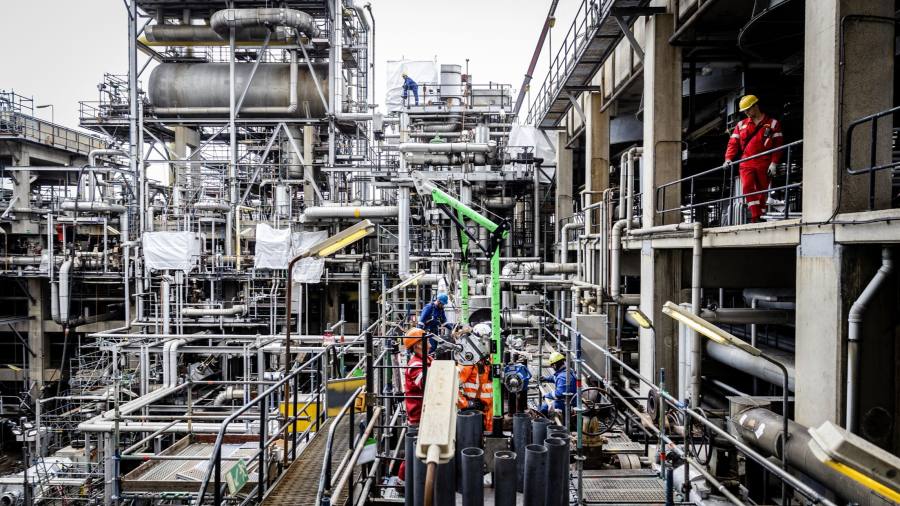If BP chief executive Bernard Looney described his company as a “cash machine” just before Russia’s invasion of Ukraine sent oil and gas prices soaring, what does that make it now? Big Oil’s coffers are overflowing. The top western energy companies raked in a record $219bn in profit last year, as the war led to a surge in prices and a renewed focus on energy security. Bumper revenues come as households weather a historic cost of living crisis amid painfully costly energy bills. Calls for even tougher windfall taxes are mounting. There is nothing intrinsically wrong with the supermajors’ super profits; their fortunes sway with boom and bust cycles just like any industry. What is more problematic is how they actually plan to spend them.
Record earnings come at a potentially opportune moment. Governments are reshaping policy agendas to meet climate change goals, and fossil fuel demand is expected to peak this decade, according to the International Energy Agency. Big Oil can — and should — capitalise by recycling its bounties into transforming their business models for the green transition and supporting national net zero targets. Recent earnings reports, however, suggest oil firms may be squandering this opportunity.
BP’s $28bn profit last year was the highest in its 114-year history. Looney, however, pared back its transition strategy, indicating it will cut oil and gas output by 25 per cent by 2030, instead of the 40 per cent it had previously pledged. It did at least commit to increase spending on its transition businesses by £8bn. Shell made a record annual profit of about $40bn, but its capital spending next year, including the proportion spent in its renewables and energy solutions division — $3.5bn in 2022, a mere 14 per cent of its total capex — will stay flat. Both also signalled plans to spend billions on further share buybacks this year.
European oil firms are being distracted by short-term interests. Greater political focus on energy security to cover lost energy flows from Russia, high oil and gas prices, and returning demand from China are favourable for their traditional business. The promise of lofty dividends means shareholders are egging them on. BP’s shares hit a three and a half year high following its plans to scale back cuts to its hydrocarbons output. Shares of the UK-listed oil majors BP and Shell have trailed those of US rivals ExxonMobil and Chevron, which are less fond of green spending.
A near-term focus on returns is detrimental to net zero efforts: emissions need to be cut today, not just in the decades ahead. But further windfall taxes will not help either. Arbitrary retrospective taxes risk creating uncertainty over future capex plans, affecting both fossil fuel and green projects. A managed phaseout of carbon is key. Oil and gas is still important while clean electricity infrastructure, renewables and storage ramp up. Oil companies also have significant research and engineering expertise that could support the transition.
Energy security should, however, not be used as an excuse to slow down on green initiatives. The best way to support energy supply in the long run is by focusing on renewable power sources and decarbonisation. Governments globally can provide more sweeteners: committing to spending on clean tech, incentivising green investments through the tax system, and ensuring planning regulations do not hinder renewable projects. Disincentivising fossil fuel focus over the medium term and broadening carbon pricing mechanisms are also important sticks. And ultimately, Big Oil chief executives and their shareholders need to wake up fast to the existential risk of leaning too heavily on the declining petroleum economy.


